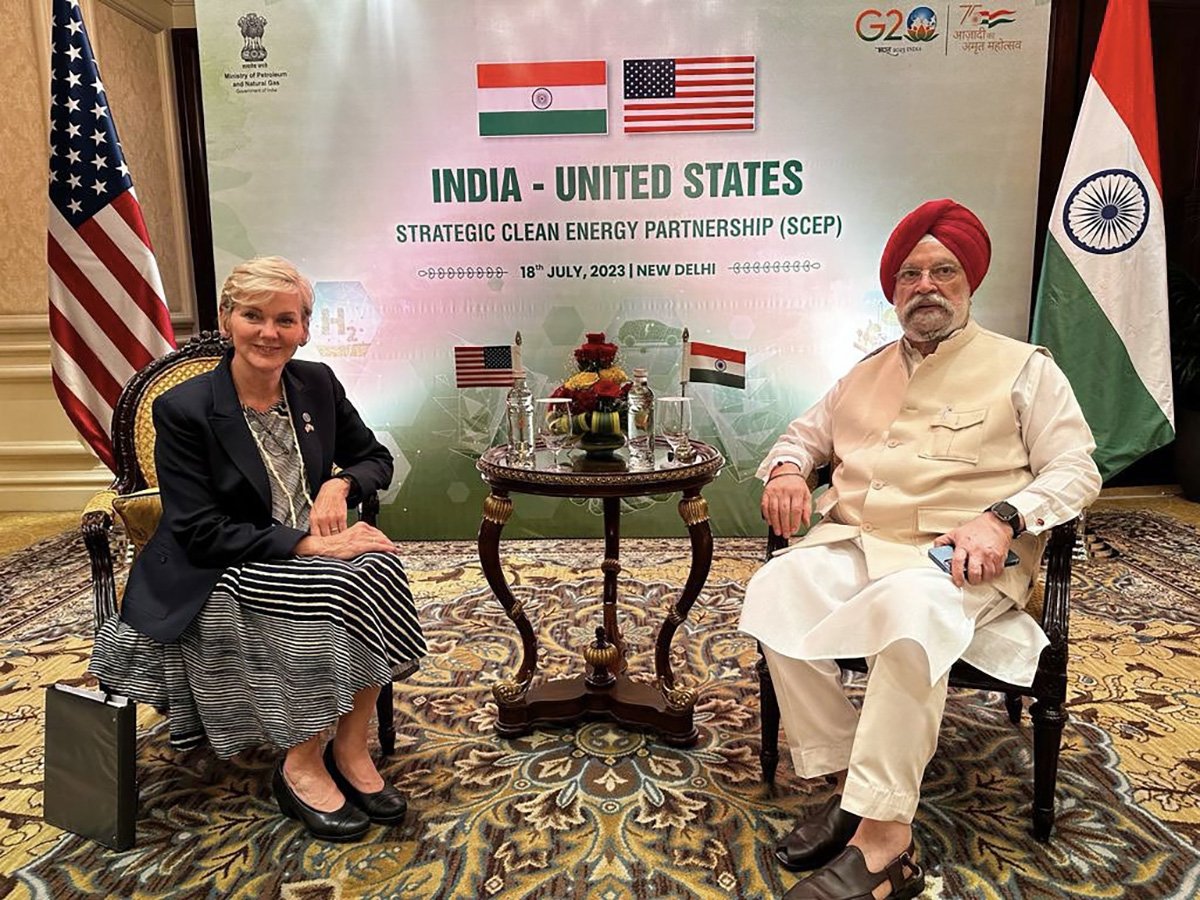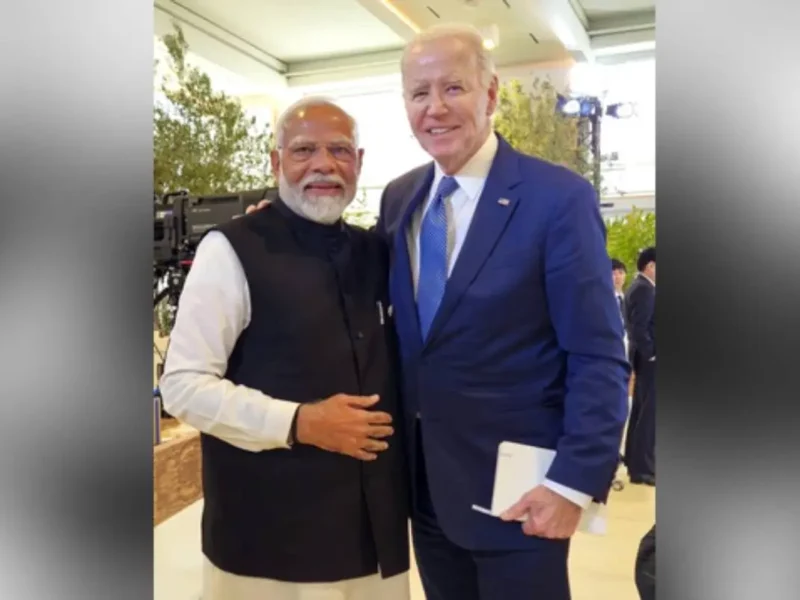
US, India Strengthen Clean Energy Engagement
NEW DELHI (ANI) – The US-India Strategic Clean Energy Partnership (SCEP) Ministerial meeting took place in New Delhi, emphasizing the growing importance of bilateral energy cooperation and clean energy engagement between India and the United States.
Both nations recognized the achievements of the SCEP in enhancing energy security, promoting clean energy innovation, addressing climate change, and generating employment opportunities. The joint statement highlighted the critical importance of bilateral clean energy engagement and the commercial partnerships facilitated by the SCEP, aiming for a just, orderly, and sustainable energy transition.
The review of the SCEP mandate revealed collaboration across various clean energy work streams, including clean and renewable energy, energy efficiency, battery storage, gas hydrates, advanced biofuels, and hydrogen production. Green hydrogen was acknowledged as a critical energy source for global decarbonization, with both countries pledging support for each other’s national hydrogen missions.
The establishment of public-private task forces and the launch of the US-India New and Emerging Renewable Energy Technologies Action Platform (RETAP) were welcomed. Efforts were highlighted to develop and deploy energy storage technologies, advance national hydrogen strategies, and accelerate cooperation on emerging renewable energy technologies.
Cooperation in reducing carbon emissions through zero-emissions vehicles and securing funding for the e-mobility sector was emphasized. The ministers recognized the significance of the “Electric Vehicle (EV) financing services facility” in supporting e-mobility.
Research, development, and commercialization of emerging fuels, including bioethanol, renewable diesel, sustainable aviation fuels, and advanced biofuels, were also discussed. The vision of establishing the Global Biofuels Alliance, promoting global trade and technical support for biofuels programs, was affirmed.
The joint statement highlighted the importance of a stable, sustainable, and globally responsible clean energy supply chain. Modernizing the power system, promoting energy efficiency, reducing emissions in the oil and gas sector, and supporting electrification and decarbonization were welcomed.
Carbon capture, utilization, and storage were recognized as key in reducing emissions, and partnerships were encouraged in this area. Collaboration in the Low-Emissions Gas Task Force aimed to deploy emerging technologies such as carbon capture, hydrogen, alternative fuels, and methane abatement.
Cooperation between the United States Agency for International Development (USAID) and Indian agencies, particularly in green chemicals and clean energy financing, was acknowledged. The launch of the South Asia Group for Energy (SAGE) aimed to enhance collaboration between Indian agencies and US national laboratories.
The joint statement appreciated the work done by PNGRB, India, and FERC, US, in developing competitive markets, promoting investment, and updating regulatory frameworks in the oil and natural gas sector.
The ministers commended the Partnership to Advance Clean Energy-Research (PACE-R) and its contribution to advanced smart grid technologies and energy storage. The joint R&D initiatives were deemed successful.
In conclusion, the ministers reaffirmed that the SCEP represents a comprehensive vision to decarbonize while ensuring sustainable growth. They expressed optimism that the partnership’s work will continue to pave the way for a promising future in clean energy collaboration between India and the United States.




